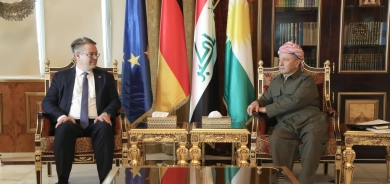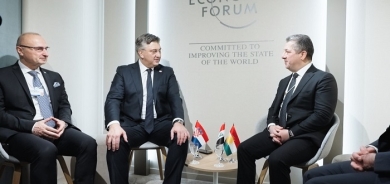Will the KRG Join the World Trade Organization?

If economic considerations were the only criteria, the KRG would already be a serious candidate for membership. Not only is the level of prosperity impressive, but the region has made major strides toward political stability and, most important, the rule of law. The latter is especially crucial. Other WTO members have to be confident that trade agreements, as well as contracts their businesses enter into, will be enforceable on a fair and equitable basis. Concerns on that score have proven to be obstacles to would-be applicants for WTO membership in the past. Indeed, uneasiness about a biased, corrupt judicial system was one factor that delayed Russia’s entry into the WTO for many years.
By that standard, though, Iraqi Kurdistan is at least as qualified for inclusion as most current WTO members—and more qualified than some. But the quality of the economic and legal systems is not the only factor determining whether an entity gains admission to the WTO. Diplomatic and geopolitical considerations also play a large, sometimes even decisive, role, and on that front, prospects for the KRG becoming a member of the global trade body anytime soon are not promising.
There are three major instances over the past two decades in which delicate compromises to political and geostrategic disputes had to be worked out before an applicant could join the WTO. The first was the admission of Cyprus in 1995. That step proved to be controversial because Turkish troops occupied 37 percent of Cypriot territory and Ankara has established the Turkish Republic of Northern Cyprus in that occupied territory—a “state” that no country other than Turkey recognized.
A second prolonged WTO controversy involved Taiwan. The Beijing government insists that Taiwan is part of China, and Chinese officials resisted the island’s goal of joining the WTO. A compromise was eventually reached in which Taiwan gained approval for membership--but not as an independent state, only as a “separate customs territory”--in 2001.
Russia also had to overcome diplomatic and geopolitical problems to gain admission. The principal obstacle was Georgia’s anger at Moscow’s backing of two secessionist Georgian regions, Abkhazia and South Ossetia. It took extended negotiations—and a tremendous amount of international pressure—before the Georgian government removed its objection to Russia’s admission earlier this year.
Those examples are pertinent to the KRG’s aspirations. The central government in Baghdad is actively seeking WTO membership for Iraq, and officials show no enthusiasm for the KRG’s admission as a separate entity. Indeed, the Maliki regime has complained often and loudly about Erbil’s practice of signing contracts with foreign corporations without receiving prior approval from Baghdad.
Turkey is also likely to have misgivings about the KRG’s inclusion in the WTO. True, such membership would facilitate the growing operations of Turkish companies in northern Iraq, and might well be welcomed by many of those firms. But Turkish leaders also worry about any actions that create the impression that Iraqi Kurdistan can operate as an independent state. In the past, Ankara has considered the autonomous Kurdish region a political magnet for Turkey’s own Kurdish population, and, therefore, as a potential menace to the unity of the Turkish state.
Before the KRG can gain admission to the WTO, it is almost certain that the objections of both Baghdad and Ankara must be overcome. The WTO prefers to work by consensus when it comes to membership applications, which means that either government could effectively veto the KRG’s aspirations. Although theoretically, the WTO could approve a new member by majority vote, that course is extremely unlikely in this case. The United States and its European allies would not want to anger Turkey, a fellow NATO member, and Washington would be reluctant to undercut Baghdad either.
The KRG’s only plausible strategy is to patiently conduct a campaign to get the Turkish and Iraq governments to acquiesce. But even that is a very long-term strategy with uncertain prospects for success.
Ted Galen Carpenter, a senior fellow at the Cato Institute, is the author of nine books and more than 500 articles and studies on international affairs. Dr. Carpenter is also a member of the editorial board of Mediterranean Quarterly.

 Ted Galen Carpenter
Ted Galen Carpenter











